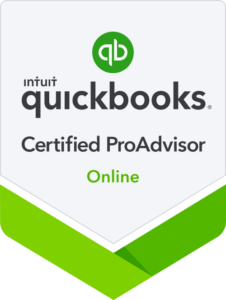
Starting a new business is challenging and can be overwhelming. You’re focused on so many things at once, and you of course do want to worry about your accounting and tax woes.
As you begin your new company, however, it is crucial that you pay close attention to your accounting and taxes for two main reasons. First, filing your taxes properly or poorly can be the difference between thousands of dollars. Secondly, the last thing you want to do as a new business is get in trouble with the IRS.
This article will give you four tips for staying on top of your accounting and tax needs as a new business. We will then discuss some ways we may be able to help you out.
Choose Your Business Entity Type:
As you start your company, you must classify it. This means designating it as either a sole proprietorship, partnership, or corporation (there are other forms of companies, but these are the main three). Here is a breakdown of each:
- A Sole Proprietorship is a company that is owned by one person and is not legally separate from the individual. This means that as the business owner, you combine your personal and professional taxes, meaning you do not pay separate taxes on your company and personal life, unlike a corporation (more on corporations below). However, in a sole proprietorship, as the business owner, you assume 100 percent liability for any debts or anything else that could go wrong.
- A Partnership is essentially the same thing as a sole proprietorship, but the business is owned by more than one person. Partnerships also combine personal and professional taxes, and they also assume 100 percent liability.
- A Corporation is a business entity that is legally separate from those who manage the company. This means that the company pays its taxes, while you also pay your individual taxes. While corporations are taxed heavier than sole proprietorships and partnerships, the benefit of a corporation is that the leaders of the company do not assume 100 percent liability. Therefore, if the company fails, those who run it are not legally liable for its debts.
As the above business entity descriptions imply, classifying your business has huge tax implications, so it is important to choose the right classification. Generally, small businesses, such as restaurants, small retail shops, or businesses with very few employees, are either sole proprietorships or partnerships, while larger organizations, such as tech and retail giants, are classified as corporations. Check out the U.S. Small Business Administration for more information about choosing a business entity type.
Know Your Business Costs:
As you may already know, you are able to deduct any costs associated with your business from your taxes. For example, if you buy a new laptop for your company, you can deduct the cost of that laptop from your taxes.
As a new business, you will have many start-up costs, and it is important to keep track of each one so you can ensure you deduct them all from your taxes. This may seem like a burden, but it’s worth it. It could save you thousands of dollars on your taxes.
Start Your Taxes Early:
In addition to the numerous start-up costs you will have as a new business, you will also most likely have an inconsistent revenue stream. You may also have random accounting issues pop up that you may not expect.
Because of this, it is important to begin filing your taxes early. This will give you plenty of time to get it right and will help you avoid any issues with the IRS.
Outsource Your Accounting and Taxes:
Outsourcing accounting and tax-related activities is becoming more popular each year. As a new business, it may make sense for you to outsource because it will allow you to focus your time and energy on what matters most: getting your business off the ground and generating revenue.
If you operate a new business and need help with your accounting or tax-related activities, please do not hesitate to reach out. With the full range of accounting services Allman & Allman APAC provides, we are equipped with the expertise for which you may be in need. Seeking guidance from our firm will provide you the opportunity to work with individuals armed with broad and deep financial knowledge, able to provide advice on a wide range of issues. As a full-service public accounting firm, our professional services will surely help you succeed and thrive. Please feel free to reach out to Allman & Allman APAC via email at [email protected] or via phone at 760-773-1120 (Palm Desert) or 310-544-1120 (Rolling Hills Estates) to discuss your situation and find out how we can help you grow. We look forward to hearing from you.



